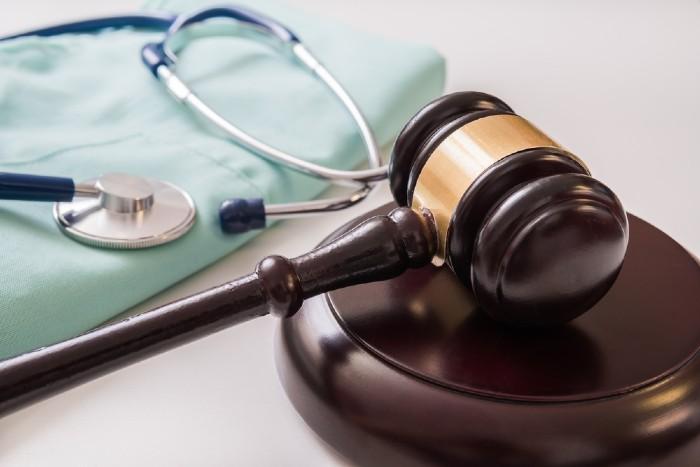Electronic Health Records (EHRs) offer various advantages regarding proficiency and coordination of care; they likewise assume an essential part in judicial procedures, especially in medical malpractice cases.
The Development of Electronic Wellbeing Records
Electronic Wellbeing Records have replaced traditional paper-based frameworks with computerized stages that consider the consistent exchange of patient data among medical care providers.
Challenges in Using Electronic Wellbeing Records as Proof
One of the vital difficulties in integrating EHRs into clinical negligence cases lies in the immense measure of information produced and the potential for distortion. Sifting through many electronic records to find relevant information supporting their client's case is daunting for attorneys. Additionally, the digital nature of these records raises questions regarding the information's accuracy, integrity, and security.
The use of EHRs) as credible evidence in court can be complicated by issues like inconsistent documentation, errors in data entry, and the possibility of tampering with electronic records. Lawful experts should foster procedures to confirm and approve electronic information to guarantee its unwavering quality during cases.
Using Electronic Health Records to Prove Negligence Medical Malpractice cases depend on proving that healthcare providers were negligent. EHRs can be a goldmine of data for lawyers trying to demonstrate or refute carelessness. By meticulously examining electronic records, attorneys can uncover unsatisfactory considerations, deviations from laid-out conventions, and failures in correspondence that might have added to patient damage.
However, to demonstrate negligence through electronic health records (EHRs), it is necessary to have a comprehensive comprehension of medical standards and relevant regulations and the capacity to present intricate technical data in a manner understandable to juries and judges. Medical professionals who can interpret the electronic data and offer expert opinions on whether the standard of care was breached frequently collaborate with attorneys.
Security Concerns Encompassing Electronic Wellbeing Records
The expanded dependence on computerized well-being records raises security worries as touchy patient data is put away and communicated electronically. Not only is it morally right to keep EHRs private and secure, but it is also required by law. Clinical misbehaviour lawyers should explore the perplexing snare of well-being security regulations, for example, the Health Care Coverage Movability and Responsibility Act (HIPAA), to defend their clients' privileges and shield delicate clinical data from unapproved access.
Medical malpractice cases are made more complicated by the possibility that EHR-related privacy breaches can stand independently as a separate cause of action.
The Job of Master Observers in EHR-Driven Cases
Given the specialized idea of EHRs and the clinical complexities included, master observers assume a critical part in clinical misbehaviour cases depending on electronic well-being records. These observers, frequently medical services experts with aptitude in important fortes, can assist with interpreting the information in EHRs and give well-qualified sentiments on whether the norm of care was met or penetrated.
To effectively convey intricate information to juries and judges, attorneys must carefully select and prepare their expert witnesses. The validity and enticement of master declaration can fundamentally impact the result of a case, making the joint effort among legitimate and clinical experts a basic part of EHR-driven prosecution.
Studies of Cases: EHRs in the Courtroom Investigating actual medical malpractice cases in which electronic health records (EHRs) played a significant role sheds light on the legal dynamics of using EHRs as evidence.
Misdiagnosis Because of EHR Mistakes:
In a notable instance, an electronic health record (EHR) error was blamed for a patient's incorrect diagnosis, delaying proper treatment. The legal team successfully argued that the healthcare provider failed to diagnose the patient correctly because of errors in the electronic records.
Correspondence Breakdowns in EHR-Driven Misbehavior:
Digital record-keeping lapses can result in critical errors in patient care, as demonstrated by a case involving communication breakdowns documented in EHRs. The legitimate investigation zeroed in on medical services experts' disappointment in imparting urgent data inside the electronic framework, underscoring the effect on understanding results.
In medical malpractice cases, the role of electronic health records (EHRs) is both transformative and intricate. As medical services progress innovatively, the lawful scene encompassing EHRs develops, introducing difficulties and opening doors for lawyers, medical care experts, and the equity framework in general.
Integrating electronic health records (EHRs) into medical malpractice litigation introduces a wealth of information that can either strengthen or complicate a case. The difficulties associated with data accuracy, privacy concerns, and the possibility of misinterpretation go hand in hand with the advantages of electronic records, such as improved accessibility and care coordination.
In addition to being well-versed in legal principles, attorneys specializing in medical malpractice must thoroughly comprehend healthcare standards, technology, and ethical considerations regarding patient data.
Final Thoughts
A multidisciplinary approach that combines legal expertise with a thorough comprehension of healthcare standards and technology is required to analyze EHR-driven cases legally. Attorneys in medical malpractice and electronic health records must be careful when dealing with data accuracy, privacy, and effective presentation of technical information.
The confirmation and approval of electronic wellbeing information arise as basic parts of the legitimate interaction. Lawyers must explore the immense ocean of computerized data, recognizing pertinent data of interest while tending to worries about irregularities, blunders, and expected altering. Protecting patient confidentiality becomes an ethical obligation and a legal requirement as sensitive patient information is stored and transmitted electronically.
Legal professionals should keep up with new best practices, changes in regulations, and technological advancements when navigating the role of EHRs in the courtroom. Progressing cooperation between the lawful and clinical networks is crucial for addressing advancing difficulties and guaranteeing a fair outcome in an undeniably computerized medical care scene. The cooperative energy between regulation and innovation will keep moulding the lawful investigation of medical malpractice cases, including EHRs.
